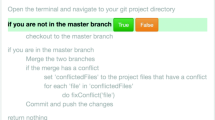Abstract
The process of constructing expert systems (ESs), programs that approximate how domain experts solve problems in their specialized fields, is not at all as systematic, efficient, and verifiable as it should be. A reason is that no rigorous error-prevention interviewing method exists for structuring and testing ESs while building them. Often domain experts do implicitly ask of themselves analytical questions such as ‘Is that claim of mine always true?’ Another kind of expert — one specializing in logic analysis — explicitates, collects, and systematizes the fund of generic questions, such as ‘Are these sub-goals sufficient steps to the pre-established goal-category?’ There is a great need to make a method of interviewing, interlaced with testing and organizing, available to all domain experts and ES programmers via an interactive program. This program, which can generically be called a LAP (Logic Aids Program), plays the role of a domain-independent logic-assistant.
Similar content being viewed by others
References
Aristotle, ‘On Interpretation’, in Basic Works of Aristotle, ed. R. McKeon, Random House (1941).
Beizer, Boris, Software System Testing and Quality Assurance, Van Nostrand Reinhold Co. (1984).
Bennett, James S., ‘ROGET: A Knowledge-based System for Acquiring the Conceptual Structure of a Diagnostic Expert System’, Journal of Automated Reasoning 1, 49–74 (1985).
Boose, John H., ‘Personal Construct Theory and the Transfer of Human Expertise’, in Proceedings of the National Conference on Artificial Intelligence, Austin, Texas (1984).
van de Brug, Arnold, Bachant, Judith, and McDermott, John, ‘The Taming of R1’, IEEE EXPERT 33–38 (Fall 1986).
Chandrasekaran, B., ‘Generic Tasks in Knowledge-based Reasoning: High-level Building Blocks for Expert System Design’, IEEE EXPERT 23–30 (Fall 1986).
Clancey, W. ‘Heuristic Classification’, Artificial Intelligence 27, 21–40 (1985).
Clancey, W. ‘Representing Control Knowledge as Abstract Tasks and Meta-rules’, a paper delivered at the ‘Workshop for High Level Tools for Knowledge-based Systems’, sponsored by the American Association for Artificial Intelligence and DARPA, held at Ohio State University, Columbus, Ohio (October 1986).
Cooke, Nancy M. and McDonald, James, ‘A Formal Methodology for Acquiring and Representing Expert Knowledge’, Proceedings of the IEEE 74, 1422–1430 (October 1986).
Davis, Randall, Applications of Meta-level Knowledge to the Construction, Maintenance and Use of Large Knowledge Bases, PhD dissertation, Stanford University (June 1976).
de Bono, Edward, Lateral Thinking, Haper & Row (1973).
di Piazza, Joseph, ‘An Interactive Knowledge Acquisition and Verification Expert System: a Study in Logic Requirements’, a paper delivered at the ‘Workshop for High Level Tools for Knowledge-based Systems’, sponsored by the American Association for Artificial Intelligence and DARPA, held at Ohio State University, Columbus, Ohio (October 1986).
Eshelman, Larry and McDermott, John, ‘MOLE: A Knowledge Acquisition Tool That Uses its Head’, in the Proceedings of the National Conference on Artificial Intelligence, Philadelphia, Pennsylvania (1986).
Feigenbaum, Edward A. and McCorduck, Pamela, The Fifth Generation: Artificial Intelligence and Japan's Computer Challenge to the World, Addison-Wesley (1983).
Finan, Timothy, ‘Interactive Classification: A Technique for Acquiring and Maintaining Knowledge Bases’, Proceedings of the IEEE 74 (October 1986).
Gruber, T. and Cohen, P. ‘Principles of Design for Knowledge Acquisition’, Proceedings of the Third Conference on Artificial Intelligence Applications, sponsored by the Computer Society by IEEE, pp. 9–15 (1987).
Kahn, Gary, Nowlan, S., and McDermott, J., ‘MORE: An Intelligent Knowledge Acquisition Tool’, in the Proceedings of the Ninth International Conference on Artificial Intelligence, Los Angeles, California (1985).
Kahn, Gary, Nowlan, S., and McDermott, John, ‘A Foundation for Knowledge Acquisition’, in Proceedings of IEEE Workshop on Principles of Knowledge-Based Systems, Denver, Colorado (1984).
Klinker, Georg, Bentoilla, Joel, Genetet, Sege, Grimes, Michael, and McDermott, John, ‘KNACK-Report-Driven Knowledge Acquisition’, a paper presented at Knowledge Acquisition for Knowledge-Based Systems Workshop, Banff, Canada (November 1986).
Kowalski, Robert, Logic for Problem Solving, North Holland (1979).
Marcus, Sandra, McDermott, John, and Wang, Tianran, ‘Knowledge Acquisition for Constructive Systems’, in Proceedings of the National Conference on Artificial Intelligence, Los Angeles, California (1985).
Nguyen, T. A., ‘Verifying Consistency of Production Systems’, Proceedings of the Third Conference on Artificial Intelligence, sponsored by the Computer Society of the IEEE (February 1987).
Plato, ‘Meno’, in Platonic Dialogues, ed. R. H. Rouse, New American Library (1956).
Politakis, Peter, Empirical Analysis for Expert Systems, Morgan Kaufmann Publishers (1985). Also with, Polya, G., How To Solve It, McGraw Hill (1948).
Sowa, John, Conceptual Structures: Information Processing in Mind and Machine, Addison-Wesley (1985).
Suwa, Motoi, Scott, A. Carlisle, and Shortliffe, Edward, ‘An Approach to Verifying Completeness and Consistency in a Rule-based Expert System’, AI Magazine 3 (Fall 1982).
Weiss, S. and Kulikowski, C., ‘EXPERT: A System for Developing Consultation Models’, in Proceedings of the Sixth International Joint Conference on Artificial Intelligence, Tokyo, Japan (1979).
Wittgenstein, Ludwig, Philosophical Investigations, Blackwell (1951).
Anon., ‘Expert Profiles: Lockheed Corporation's Software Technology Center’, IEEE Expert 72–74 (Winter 1986).
Author information
Authors and Affiliations
Rights and permissions
About this article
Cite this article
Di Piazza, J.S. Interweaving knowledge extracting, organizing and evaluating: A concrete design for preventing logic and structure bugs while interviewing experts. J Autom Reasoning 6, 299–317 (1990). https://doi.org/10.1007/BF00244490
Received:
Issue Date:
DOI: https://doi.org/10.1007/BF00244490




